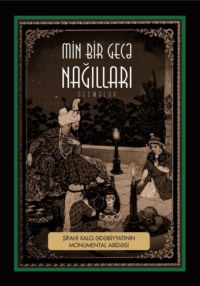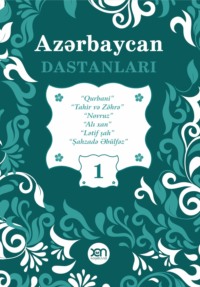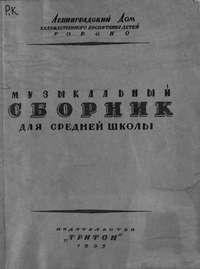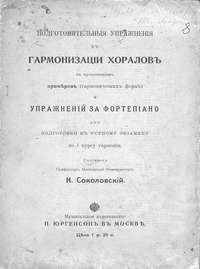 полная версия
полная версияA plain and literal translation of the Arabian nights entertainments, now entituled The Book of the Thousand Nights and a Night, Volume 4 (of 17)
She said, It hath reached me, O auspicious King, that the Prince of True Believers said to that merchant, “Bring me fifty loads of stuffs such as come from Cairo, and let each one be worth a thousand dinars, and write on each bale its price; and bring me also a male Abyssinian slave.” The merchant did the bidding of the Caliph who committed to the slave a basin and ewer of gold and other presents, together with the fifty loads; and wrote a letter to Ala al-Din as from his father Shams al-Din and said to him, “Take these bales and what else is with them, and go to such and such a quarter wherein dwelleth the Provost of the merchants and say: – Where be Ala al-Din Abu al-Shamat? till folk direct thee to his quarter and his house.” So the slave took the letter and the goods and what else and fared forth on his errand. Such was his case; but as regards Zubaydah’s cousin and first husband, he went to her father and said to him, “Come let us go to Ala al-Din and make him divorce the daughter of my uncle.” So they set out both together and, when they came to the street in which the house stood, they found fifty he-mules laden with bales of stuffs, and a blackamoor riding on a she-mule. So they said to him, “Whose loads are these?” He replied, “They belong to my lord Ala al-Din Abu al-Shamat; for his father equipped him with merchandise and sent him on a journey to Baghdad-city; but the wild Arabs came forth against him and took his money and goods and all he had. So when the ill news reached his father, he despatched me to him with these loads, in lieu of those he had lost; besides a mule laden with fifty thousand dinars, a parcel of clothes worth a power of money, a robe of sables73 and a basin and ewer of gold.” Whereupon the lady’s father said, “He whom thou seekest is my son-in-law and I will show thee his house.” Meanwhile Ala al-Din was sitting at home in huge concern, when lo! one knocked, at the door and he said, “O Zubaydah, Allah is all-knowing! but I fear thy father hath sent me an officer from the Kazi or the Chief of Police.” Quoth she, “Go down and see what it is.” So he went down; and, opening the door, found his father-in-law, the Provost of the merchants with an Abyssinian slave, dusky-complexioned and pleasant of favour, riding on a mule. When the slave saw him he dismounted and kissed his hands; and Ala al-Din said, “What dost thou want?” He replied, “I am the slave of my lord Ala al-Din Abu al-Shamat, son of Shams al-Din, Consul of the merchants for the land of Egypt, who hath sent me to him with this charge.” Then he gave him the letter and Ala al-Din opening it found written what followeth:74—
Ho thou my letter! when my friend shall see thee, ✿ Kiss thou the ground and buss his sandal-shoon:Look thou hie softly and thou hasten not; ✿ My life and rest are in those hands so boon.“After hearty salutions and congratulations and high estimation from Shams al-Din to his son, Abu al-Shamat. Know, O my son, that news hath reached me of the slaughter of thy men and the plunder of thy monies and goods; so I send thee herewith fifty loads of Egyptian stuffs, together with a suit of clothes and a robe of sables and a basin and ewer of gold. Fear thou no evil and the goods thou hast lost were the ransom of thy life; so regret them not and may no further grief befal thee. Thy mother and the people of the house are doing well in health and happiness and all greet thee with abundant greetings. Moreover, O my son, it hath reached me that they have married thee, by way of intermediary, to the lady Zubaydah the Lutist and they have imposed on thee a marriage-settlement of ten thousand dinars; wherefore I send thee also fifty thousand dinars by the slave Salím.”75 Now when Ala al-Din had made an end of reading the letter, he took possession of the loads and, turning to the Provost, said to him, “O my father-in-law, take the ten thousand dinars, the marriage-settlement of thy daughter Zubaydah, and take also the loads of goods and dispose of them, and thine be the profit; only return me the cost-price.” He answered, “Nay, by Allah, I will take nothing; and, as for thy wife’s settlement, do thou settle the matter with her.” Then, after the goods had been brought in, they went to Zubaydah and she said to her sire, “O my father, whose loads be these?” He said, “These belong to thy husband, Ala al-Din: his father hath sent them to him instead of those whereof the wild Arabs spoiled him. Moreover, he hath sent him fifty thousand dinars with a parcel of clothes, a robe of sables, a she-mule for riding and a basin and ewer of gold. As for the marriage-settlement that is for thy recking.” Thereupon Ala al-Din rose and, opening the money-box, gave her her settlement and the lady’s cousin said, “O my uncle, let him divorce to me my wife;” but the old man replied, “This may never be now; for the marriage-tie is in his hand.” Thereupon the young man went out, sore afflicted and sadly vexed and, returning home, fell sick, for his heart had received its death-blow; so he presently died. But as for Ala al-Din, after receiving his goods he went to the bazar and buying what meats and drinks he needed, made a banquet as usual against the night, saying to Zubaydah, “See these lying Dervishes; they promised us and broke their promises.” Quoth she, “Thou art the son of a Consul of the merchants, yet was thy hand short of half a dirham; how then should it be with poor Dervishes?” Quoth he, “Almighty Allah hath enabled us to do without them; but if they come to us never again will I open the door to them.” She asked, “Why so, whenas their coming footsteps brought us good luck; and, moreover, they put an hundred dinars under the prayer-carpet for us every night? Perforce must thou open the door to them an they come.” So when day departed with its light and in gloom came night, they lighted the wax candles and he said to her, “Rise, Zubaydah, make us music;” and behold, at this moment some one knocked at the door, and she said, “Go and look who is at the door.” So he went down and opened it and seeing the Dervishes, said, “Oh, fair welcome to the liars! Come up.” Accordingly they went up with him and he seated them and brought them the tray of food; and they ate and drank and became merry and mirthful, and presently said to him, “O my lord, our hearts have been troubled for thee: what hath passed between thee and thy father-in-law?” He answered, “Allah compensated us beyond and above our desire.” Rejoined they, “By Allah, we were in fear for thee” – And Shahrazad perceived the dawn of day and ceased to say her permitted say.
Now when it was the Two Hundred and Fifty-ninth Night,She said, It hath reached me, O auspicious King, that the Dervishes thus addressed Ala al-Din, “By Allah, we were in fear for thee and naught kept us from thee but our lack of cash and coin.” Quoth he, “Speedy relief hath come to me from my Lord; for my father hath sent me fifty thousand dinars and fifty loads of stuffs, each load worth a thousand dinars; besides a riding-mule, a robe of sables, an Abyssinian slave and a basin and ewer of gold. Moreover, I have made my peace with my father-in-law and my wife hath become my lawful wife by my paying her settlement; so laud to Allah for that!” Presently the Caliph rose to do a necessity; whereupon Ja’afar bent him towards Ala al-Din and said, “Look to thy manners, for thou art in the presence of the Commander of the Faithful.” Asked he, “How have I failed in good breeding before the Commander of the Faithful, and which of you is he?” Quoth Ja’afar, “He who went out but now to make water is the Commander of the Faithful, Harun al-Rashid, and I am the Wazir Ja’afar; and this is Masrur the executioner and this other is Abu Nowas Hasan bin Hani. And now, O Ala al-Din, use thy reason and bethink thee how many days’ journey it is between Cairo and Baghdad.” He replied, “Five-and-forty days’ journey;” and Ja’afar rejoined, “Thy baggage was stolen only ten days ago; so how could the news have reached thy father, and how could he pack thee up other goods and send them to thee five-and-forty days’ journey in ten days’ time?” Quoth Ala al-Din, “O my lord and whence then came they?” “From the Commander of the Faithful,” replied Ja’afar, “of his great affection for thee.” As they were speaking, lo! the Caliph entered and Ala al-Din rising, kissed the ground before him and said, “Allah keep thee, O Prince of the Faithful, and give thee long life; and may the lieges never lack thy bounty and beneficence!” Replied the Caliph, “O Ala al-Din, let Zubaydah play us an air, by way of house-warming76 for thy deliverance.” Thereupon she played him on the lute so rare a melody that the very stones shook for glee, and the strings cried out for present ecstasy, “O Loving One!” They spent the night after the merriest fashion, and in the morning the Caliph said to Ala al-Din, “Come to the Divan to-morrow.” He answered, “Hearkening and obedience, O Commander of the Faithful; so Allah will and thou be well and in good case!” On the morrow he took ten trays and, putting on each a costly present, went up with them to the palace; and the Caliph was sitting on the throne when, behold, Ala al-Din appeared at the door of the Divan, repeating these two couplets: —
Honour and Glory wait on thee each morn! ✿ Thine enviers’ noses in the dust be set!Ne’er cease thy days to be as white as snow; ✿ Thy foeman’s days to be as black as jet!“Welcome, O Ala al-Din!” said the Caliph, and he replied, “O Commander of the Faithful, the Prophet (whom Allah bless and assain!)77 was wont to accept presents; and these ten trays, with what is on them, are my offering to thee.” The Caliph accepted his gift and, ordering him a robe of honour, made him Provost of the merchants and gave him a seat in the Divan. And as he was sitting behold, his father-in-law came in and, seeing Ala al-Din seated in his place and clad in a robe of honour, said to the Caliph, “O King of the age, why is this man sitting in my place and wearing this robe of honour?” Quoth the Caliph, “I have made him Provost of the merchants, for offices are by investiture and not in perpetuity, and thou art deposed.” Answered the merchant, “Thou hast done well, O Commander of the Faithful, for he is ours and one of us. Allah make the best of us the managers of our affairs! How many a little one hath become great!” Then the Caliph wrote Ala al-Din a Firman78 of investiture and gave it to the Governor who gave it to the crier,79 and the crier made proclamation in the Divan saying, “None is Provost of the merchants but Ala al-Din Abu al-Shamat, and his word is to be heard, and he must be obeyed with due respect paid, and he meriteth homage and honour and high degree!” Moreover, when the Divan broke up, the Governor went down with the crier before Ala al-Din and the crier repeated the proclamation and they carried Ala al-Din through the thoroughfares of Baghdad, making proclamation of his dignity. Next day, Ala al-Din opened a shop for his slave Salim and set him therein, to buy and sell, whilst he himself rode to the palace and took his place in the Caliph’s Divan. – And Shahrazad perceived the dawn of day and ceased saying her permitted say.
Now when it was the Two Hundred and Sixtieth Night,She said, It hath reached me, O auspicious King, that Ala al-Din rode to the palace and took his place in the Caliph’s Divan. Now it came to pass one day, when he sat in his stead as was his wont, behold, one said to the Caliph, “O Commander of the Faithful, may thy head survive such an one the cup-companion!; for he is gone to the mercy of Almighty Allah, but be thy life prolonged!”80 Quoth the Caliph, “Where is Ala al-Din Abu al-Shamat?” So he went up to the Commander of the Faithful, who at once clad him in a splendid dress of honour and made him his boon-companion; appointing him a monthly pay and allowance of a thousand dinars. He continued to keep him company till, one day, as he sat in the Divan, according to his custom attending upon the Caliph, lo and behold! an Emir came up with sword and shield in hand and said, “O Commander of the Faithful, may thy head long outlive the Head of the Sixty, for he is dead this day;” whereupon the Caliph ordered Ala al-Din a dress of honour and made him Chief of the Sixty, in place of the other who had neither wife nor son nor daughter. So Ala al-Din laid hands on his estate and the Caliph said to him, “Bury him in the earth and take all he hath left of wealth and slaves and handmaids.”81 Then he shook the handkerchief82 and dismissed the Divan, whereupon Ala al-Din went forth, attended by Ahmad al-Danaf, captain of the right, and Hasan Shúmán, captain of the left, riding at his either stirrup, each with his forty men.83 Presently, he turned to Hasan Shuman and his men and said to them, “Plead ye for me with the Captain Ahmad al-Danaf that he please to accept me as his son by covenant before Allah.” And Ahmad assented, saying, “I and my forty men will go before thee to the Divan every morning.” Now after this Ala al-Din continued in the Caliph’s service many days; till one day it chanced that he left the Divan and returning home, dismissed Ahmad al-Danaf and his men and sat down with his wife Zubaydah, the lute-player, who lighted the wax candles and went out of the room upon an occasion. Suddenly he heard a loud shriek; so he rose up and running in haste to see what was the matter, found that it was his wife who had cried out. She was lying at full length on the ground and, when he put his hand to her breast, he found her dead. Now her father’s house faced that of Ala al-Din, and he, hearing the shriek, came in and said, “What is the matter, O my lord Ala al-Din?” He replied, “O my father, may thy head outlive thy daughter Zubaydah! But, O my father, honour to the dead is burying them.” So when the morning dawned, they buried her in the earth and her husband and father condoled with and mutually consoled each other. Thus far concerning her; but as regards Ala al-Din, he donned mourning dress and declined the Divan, abiding tearful-eyed and heavy-hearted at home. After a while, the Caliph said to Ja’afar, “O Wazir, what is the cause of Ala al-Din’s absence from the Divan?” The Minister answered, “O Commander of the Faithful, he is in mourning for his wife Zubaydah; and is occupied in receiving those who come to console him;” and the Caliph said, “It behoveth us to pay him a visit of condolence.” “I hear and I obey,” replied Ja’afar. So they took horse, the Caliph and the Minister and a few attendants, and rode to Ala al-Din’s house and, as he was sitting at home, behold, the party came in upon him; whereupon he rose to receive them and kissed the ground before the Caliph, who said to him, “Allah make good thy loss to thee!” Answered Ala al-Din, “May Allah preserve thee to us, O Commander of the Faithful!” Then said the Caliph, “O Ala al-Din, why hast thou absented thyself from the Divan?” And he replied, “Because of my mourning for my wife, Zubaydah, O Commander of the Faithful.” The Caliph rejoined, “Put away grief from thee: verily she is dead and gone to the mercy of Almighty Allah and mourning will avail thee nothing; no, nothing.” But Ala al-Din said “O Commander of the Faithful, I shall never leave mourning for her till I die and they bury me by her side.” Quoth the Caliph, “In Allah is compensation for every decease, and neither device nor riches can deliver from death; and divinely gifted was he who said: —
All sons of woman, albe long preserved, ✿ Are borne upon the bulging bier some day.84How then shall ‘joy man joy or taste delight, ✿ Upon whose cheeks shall rest the dust and clay?”When the Caliph had made an end of condoling with him, he charged him not to absent himself from the Divan and returned to his palace. And Ala al-Din, after a last sorrowful night, mounted early in the morning and, riding to the court, kissed the ground before the Commander of the Faithful who made a movement as if rising from the throne,85 to greet and welcome him; and bade him take his appointed place in the Divan, saying, “O Ala al-Din, thou art my guest to-night.” So presently he carried him into his serraglio and calling a slave-girl named Kút al-Kulúb, said to her, “Ala al-Din had a wife called Zubaydah, who used to sing to him and solace him of cark and care; but she is gone to the mercy of Almighty Allah, and now I would have thee play him an air upon the lute,” – And Shahrazad perceived the dawn of day and ceased saying her permitted say.
Now when it was the Two Hundred and Sixty-first Night,She said, It hath reached me, O auspicious King, that the Caliph said to the damsel Kut al-Kulub, “I would have thee play him upon the lute an air, of fashion sweet and rare, that he may be solaced of his cark and care.” So she rose and made sweet music; and the Caliph said to Ala al-Din, “What sayst thou of this damsel’s voice?” He replied, “Verily, O Commander of the Faithful, Zubaydah’s voice was the finer; but she is skilled in touching the lute cunningly and her playing would make a rock dance with glee.” The Caliph asked, “Doth she please thee?” and he answered, “She doth, O Commander of the Faithful;” whereupon the King said, “By the life of my head and the tombs of my forefathers, she is a gift from me to thee, she and her waiting-women!” Ala al-Din fancied that the Caliph was jesting with him; but, on the morrow, the King went in to Kut al-Kulub and said to her, “I have given thee to Ala al-Din;” whereat she rejoiced, for she had seen and loved him. Then the Caliph returned from his serraglio-palace to the Divan; and, calling porters, said to them, “Set all the goods of Kut al-Kulub and her waiting-women in a litter, and carry them to Ala al-Din’s home.” So they conducted her to the house and showed her into the pavilion, whilst the Caliph sat in the hall of audience till the close of day, when the Divan broke up and he retired to his harem. Such was his case; but as regards Kut al-Kulub, when she had taken up her lodging in Ala al-Din’s mansion, she and her women, forty in all, besides the eunuchry, she called two of these caponised slaves and said to them, “Sit ye on stools, one on the right and another on the left hand of the door; and, when Ala al-Din cometh home, both of you kiss his hands and say to him, “Our mistress Kut al-Kulub requesteth thy presence in the pavilion, for the Caliph hath given her to thee, her and her women.”” They answered, “We hear and obey;” and did as she bade them. So, when Ala al-Din returned, he found two of the Caliph’s eunuchs sitting at the door and was amazed at the matter and said to himself, “Surely, this is not my own house; or else what can have happened?” Now when the eunuchs saw him, they rose to him and, kissing his hands, said to him, “We are of the Caliph’s household and slaves to Kut al-Kulub, who saluteth thee giving thee to know that the Caliph hath bestowed her on thee, her and her women, and requesteth thy presence.” Quoth Ala al-Din, “Say ye to her: – Thou art welcome; but so long as thou shalt abide with me, I will not enter the pavilion wherein thou art, for what was the master’s should not become the man’s; and furthermore ask her: – What was the sum of thy day’s expenditure in the Caliph’s palace?” So they went in and did his errand to her, and she answered, “An hundred dinars a day;” whereupon quoth he to himself, “There was no need for the Caliph to give me Kut al-Kulub, that I should be put to such expense for her; but there is no help for it.” So she abode with him awhile and he assigned her daily an hundred dinars for her maintenance; till, one day, he absented himself from the Divan and the Caliph said to Ja’afar, “O Wazir, I gave not Kut al-Kulub unto Ala al-Din but that she might console him for his wife; why, then, doth he still hold aloof from us?” Answered Ja’afar, “O Commander of the Faithful, he spake sooth who said: – Whoso findeth his fere, forgetteth his friends.” Rejoined the Caliph, “Haply he hath not absented himself without excuse, but we will pay him a visit.” Now some days before this, Ala al-Din had said to Ja’afar, “I complained to the Caliph of my grief and mourning for the loss of my wife Zubaydah and he gave me Kut al-Kulub;” and the Minister replied, “Except he loved thee, he had not given her to thee. Say hast thou gone in unto her, O Ala al-Din?” He rejoined, “No, by Allah! I know not her length from her breadth.” He asked “And why?” and he answered, “O Wazir, what befitteth the lord befitteth not the liege.” Then the Caliph and Ja’afar disguised themselves and went privily to visit Ala al-Din; but he knew them and rising to them kissed the hands of the Caliph, who looked at him and saw signs of sorrow in his face. So he said to him, “O Ala al-Din, whence cometh this sorrow wherein I see thee? Hast thou not gone in unto Kut al-Kulub?” He replied, “O Commander of the Faithful, what befitteth the lord befitteth not the thrall. No, as yet I have not gone in to visit her nor do I know her length from her breadth; so pray quit me of her.” Quoth the Caliph, “I would fain see her and question her of her case;” and quoth Ala al-Din, “I hear and I obey, O Commander of the Faithful.” So the Caliph went in – And Shahrazad perceived the dawn of day and ceased to say her permitted say.
Now when it was the Two Hundred and Sixty-second Night,She said, It hath reached me, O auspicious King, that the Caliph went in to Kut al-Kulub, who rose to him on sighting him and kissed the ground between his hands; when he said to her, “Hath Ala al-Din gone in unto thee?” and she answered, “No, O Commander of the Faithful, I sent to bid him come, but he would not.” So the Caliph bade carry her back to the Harim and saying to Ala al-Din, “Do not absent thyself from us,” returned to his palace. Accordingly, next morning, Ala al-Din mounted and rode to the Divan, where he took his seat as Chief of the Sixty. Presently the Caliph ordered his treasurer to give the Wazir Ja’afar ten thousand dinars and said when his order was obeyed, “I charge thee to go down to the bazar where handmaidens are sold and buy Ala al-Din a slave-girl with this sum.” So in obedience to the King Ja’afar took Ala al-Din and went down with him to the bazar. Now as chance would have it, that very day, the Emir Khálid, whom the Caliph had made Governor of Baghdad, went down to the market to buy a slave-girl for his son and the cause of his going was that his wife, Khátún by name, had borne him a son called Habzalam Bazázah,86 and the same was foul of favour and had reached the age of twenty, without learning to mount horse; albeit his father was brave and bold, a doughty rider ready to plunge into the Sea of Darkness.87 And it happened that on a certain night he had a dream which caused nocturnal pollution, whereof he told his mother who rejoiced and said to his father, “I want to find him a wife, as he is now ripe for wedlock.” Quoth Khalid, “The fellow is so foul of favour and withal so rank of odour, so sordid and beastly that no woman would take him at a gift.” And she answered, “We will buy him a slave-girl.” So it befel, for the accomplishing of what Allah Almighty had decreed, that on the same day Ja’afar and Ala al-Din, the Governor Khalid and his son went down to the market and behold, they saw in the hands of a broker, a beautiful girl lovely-faced and of perfect shape, and the Wazir said to him, “O broker, ask her owner if he will take a thousand dinars for her.” And as the broker passed by the Governor with the slave, Habzalam Bazazah cast at her one glance of the eyes which entailed for himself one thousand sighs; and he fell in love with her and passion got hold of him and he said, “O my father, buy me yonder slave-girl.” So the Emir called the broker, who brought the girl to him, and asked her her name. She replied, “My name is Jessamine;” and he said to Habzalam Bazazah, “O my son, an she please thee, do thou bid higher for her.” Then he asked the broker, “What hath been bidden for her?” and he replied, “A thousand dinars.” Said the Governor’s son, “She is mine for a thousand pieces of gold and one more;” and the broker passed on to Ala al-Din who bid two thousand dinars for her; and as often as the Emir’s son bid another dinar, Ala al-Din bid a thousand. The ugly youth was vexed at this and said, “O broker! who is it that outbiddeth me for the slave-girl?” Answered the broker, “It is the Wazir Ja’afar who is minded to buy her for Ala al-Din Abu al-Shamat.” And Ala al-Din continued till he brought her price up to ten thousand dinars, and her owner was satisfied to sell her for that sum. Then he took the girl and said to her, “I give thee thy freedom for the love of Almighty Allah;” and forthwith wrote his contract of marriage with her and carried her to his house. Now when the broker returned, after having received his brokerage, the Emir’s son summoned him and said to him, “Where is the girl?” Quoth he, “She was bought for ten thousand dinars by Ala al-Din, who hath set her free and married her.” At this the young man was greatly vexed and cast down and, sighing many a sigh, returned home, sick for love of the damsel; and he threw himself on his bed and refused food, for love and longing were sore upon him. Now when his mother saw him in this plight, she said to him, “Heaven assain thee, O my son! What aileth thee?” And he answered, “Buy me Jessamine, O my mother.” Quoth she, “When the flower-seller passeth I will buy thee a basketful of jessamine.” Quoth he, “It is not the jessamine one smells, but a slave-girl ‘named Jessamine, whom my father would not buy for me.” So she said to her husband, “Why and wherefore didst thou not buy him the girl?” and he replied, “What is fit for the lord is not fit for the liege and I have no power to take her: no less a man bought her than Ala al-Din, Chief of the Sixty.” Then the youth’s weakness redoubled upon him, till he gave up sleeping and eating, and his mother bound her head with the fillets of mourning. And while in her sadness she sat at home, lamenting over her son, behold, came in to her an old woman, known as the mother of Ahmad Kamákim88 the arch-thief, a knave who would bore through a middle wall and scale the tallest of the tall and steal the very kohl off the eye-ball.89 From his earliest years he had been given to these malpractices, till they made him Captain of the Watch, when he stole a sum of money; and the Chief of Police, coming upon him in the act, carried him to the Caliph, who bade put him to death on the common execution-ground.90 But he implored protection of the Wazir whose intercession the Caliph never rejected; so he pleaded for him with the Commander of the Faithful who said, “How canst thou intercede for this pest of the human race?” Ja’afar answered, “O Commander of the Faithful, do thou imprison him; whoso built the first jail was a sage, seeing that a jail is the grave of the living and a joy for the foe.” So the Caliph bade lay him in bilboes and write thereon, “Appointed to remain here until death and not to be loosed but on the corpse-washer’s bench;” and they cast him fettered into limbo. Now his mother was a frequent visitor to the house of the Emir Khalid, who was Governor and Chief of Police; and she used to go in to her son in jail and say to him, “Did I not warn thee to turn from thy wicked ways?”91 And he would always answer her, “Allah decreed this to me; but, O my mother, when thou visitest the Emir’s wife make her intercede for me with her husband.” So when the old woman came into the Lady Khatun, she found her bound with the fillets of mourning and said to her, “Wherefore dost thou mourn?” She replied, “For my son Habzalam Bazazah;” and the old woman exclaimed, “Heaven assain thy son!; what hath befallen him?” So the mother told her the whole story, and she said, “What wouldst thou say of him who should achieve such a feat as would save thy son?” Asked the lady, “And what feat wilt thou do?” Quoth the old woman, “I have a son called Ahmad Kamakim, the arch-thief, who lieth chained in jail and on his bilboes is written: – Appointed to remain till death; so do thou don thy richest clothes and trick thee out with thy finest jewels and present thyself to thy husband with an open face and smiling mien; and when he seeketh of thee what men seek of women, put him off and baulk him of his will and say: – By Allah, ‘tis a strange thing! When a man desireth aught of his wife he dunneth her till she doeth it; but if a wife desire aught of her husband, he will not grant it to her. Then he will say: – What dost thou want?; and do thou answer: – First swear to grant my request. If he swear to thee by his head or by Allah, say to him: – Swear to me the oath of divorce, and do not yield to him, except he do this. And whenas he hath sworn to thee the oath of divorce, say to him: – Thou keepest in prison a man called Ahmad Kamakim, and he hath a poor old mother, who hath set upon me and who urgeth me in the matter and who saith, Let thy husband intercede for him with the Caliph, that my son may repent and thou gain heavenly guerdon.” And the Lady Khatun replied, “I hear and obey.” So when her husband came into her – And Shahrazad perceived the dawn of day and ceased saying her permitted say.









